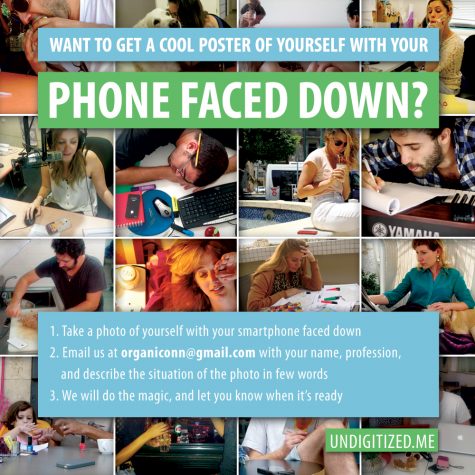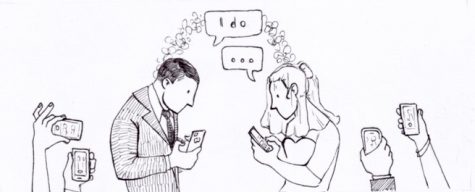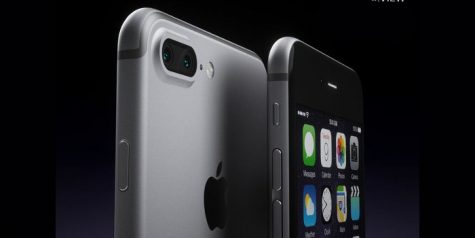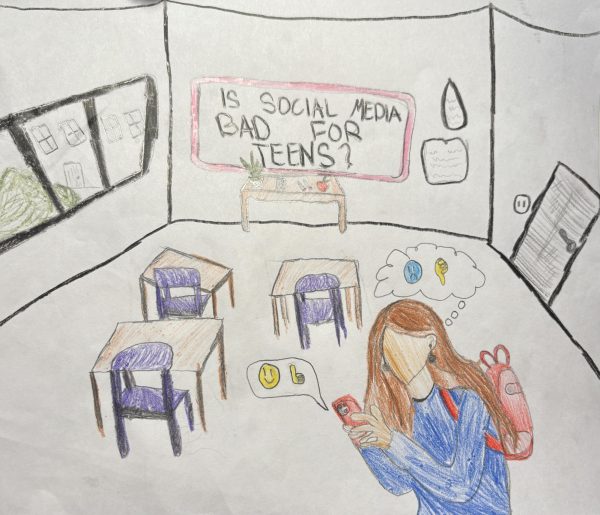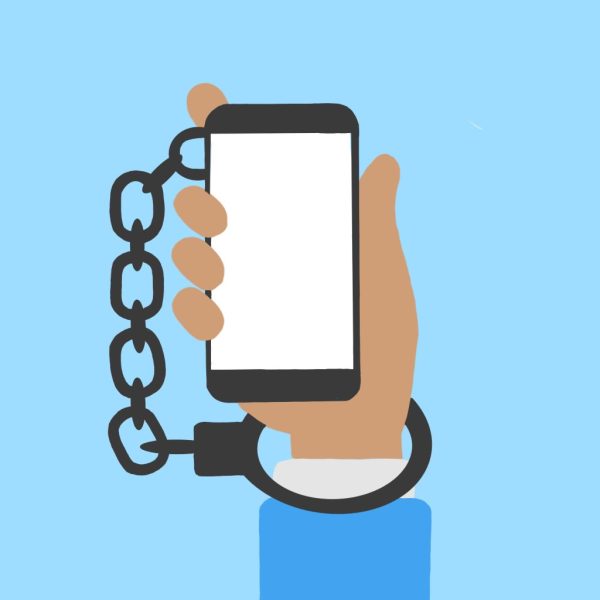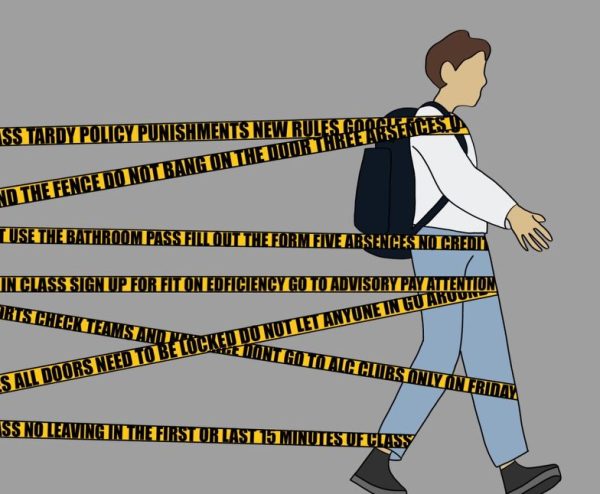Need a New Year’s resolution? Put your phone down.
Teens are especially prone to cellphone oversuse, but you don’t have to be so dependent on your phone in 2019
Perhaps when at the Louvre you should look at the Mona Lisa with your own eyes instead of through the lens of your SmartPhone. Just a thought.
Why we should rethink our relationship with the smartphone | Lior Frenkel | TEDxBG
January 1, 2019
It’s the first thing you do in the morning – reach for your phone. Cell phones have become a vital part of our daily routine, and it’s easy to see how a simple invention has changed our lives. Students at McCallum are starting to see problematic overuse, in themselves and in their friends.
Cell phone addiction can be defined as obsessive or compulsive use, comparable to substance abuse. Some common symptoms of smartphone addiction include losing track of time while on your cell phone, using your cellphone to hide from other problems, and feeling anxious without it.
The problem is getting worse, too. According to data from Flurry Mobile, the average U.S. consumer spends 5 hours a day on their phones, 20% more than 2015.
Teenagers are at a high risk to developing cell phone addiction, and according to a Common Sense Media poll, 50% of teens admit to cell phone addiction.
I think the people who are always on their phone will probably regret it later, and what? You’re just gonna spend your day on Instagram instead of with your friends?
— sophomore Scarlett Houser
“It’s a horrible cycle,” said sophomore Griffin Butler, “It’s not healthy.” Griffin described his a cycle of procrastination, where he uses his smartphone to cope, then feels guilty about wasting time and not being productive.
Another McCallum sophomore, Isobel Buffum-Robbins, shared her concern. “I was trying to study last night, and I couldn’t go five minutes without my phone. It’s really worrying, honestly.”
This sentiment seems to be popular, and most students feel guilty for wasting time and decreased productivity, but find it hard to control themselves.
“I think the people who are always on their phone will probably regret it later, and what? You’re just gonna spend your day on Instagram instead of with your friends?” said sophomore Scarlett Houser as she expressed her distaste for smartphone misuse.
Our smartphones give us instant gratification, and can get us stuck in troubling loops.
Apps like Instagram tend manipulate the user, and employ sneaky tactics like waiting to show “likes” until you rack up enough for a sufficient dopamine boost. Cell phones create an addictive response, so being without your usual fix can leave you feeling stressed, irritable, and panicked.
Take the time to evaluate your smartphone use. Examine your behavior and look for compulsiveness or dependency. Buffum-Robbins and Houser advise to be self-aware, and to simply power your cell phone off. Other helpful tips include creating a “schedule” and removing notifications. While your smartphone may seem irresistible, be wary of the consequences.
